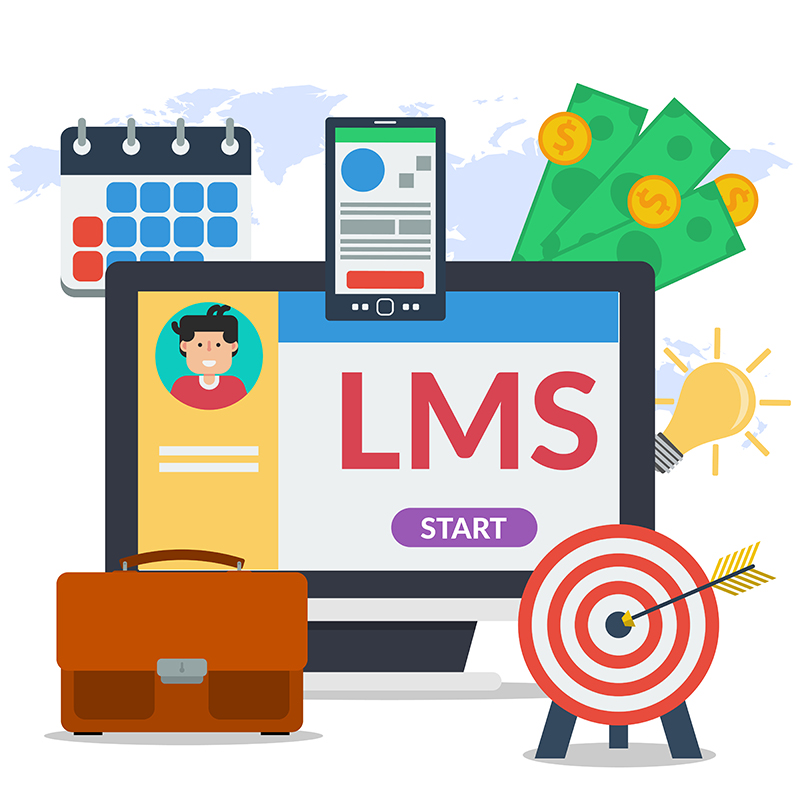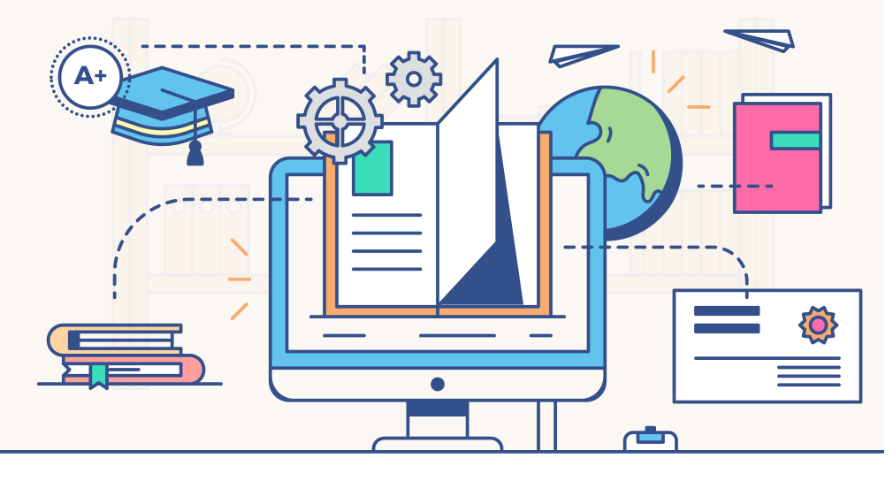Why Singapore LMS is a Breakthrough for Digital Education Systems
The Ultimate Guide to Picking the Right Learning Administration System
Picking a suitable Learning Monitoring System (LMS) is an essential decision that can dramatically affect educational performance and overall business goals. The subtleties of these considerations elevate crucial questions that warrant exploration, especially as the landscape of digital discovering continues to progress.
Understanding Discovering Management Solution
In the context of modern education and training, a Learning Administration System (LMS) offers as an important tool for delivering, monitoring, and managing training web content. An LMS helps with the company of instructional resources, making it possible for institutions and organizations to produce a central hub for discovering products. This system sustains various discovering methods, including online programs, combined learning, and conventional class setups.
LMS systems are designed to enhance the discovering experience by giving an organized environment where learners can access material at their comfort. They usually include features such as assessments, development tracking, and reporting tools, which assist instructors check pupil efficiency and engagement. Additionally, LMSs can be customized to meet the particular requirements of different learners and organizations, enabling tailored academic experiences.
The combination of an LMS into academic settings also promotes collaboration among students and instructors, fostering a feeling of area via conversation online forums and group projects. As organizations increasingly recognize the relevance of continual understanding and growth, the function of LMSs in assisting in efficient training services continues to expand, placing them as vital possessions in the educational landscape.
Key Attributes to Think About
When selecting an Understanding Monitoring System (LMS), numerous crucial functions warrant mindful factor to consider to make sure the platform aligns with academic goals. Primarily, user-friendliness is crucial; a straightforward interface facilitates ease of navigation for both learners and managers.

Assimilation with existing tools is an additional significant element; the LMS should effortlessly connect with devices like CRM systems, video clip conferencing platforms, and web content databases. canvas singapore. Mobile compatibility is significantly essential, as students frequently favor access to resources on-the-go
In addition, customization choices permit organizations to customize the LMS to their specific branding and pedagogical demands. Think about the system's scalability, guaranteeing it can accommodate future growth and modifications in customer need. Prioritizing these essential functions will certainly aid in selecting an LMS that efficiently improves the discovering experience and fulfills institutional objectives.
Pricing Models and Budgeting
Budgeting for a Knowing Administration System (LMS) calls for a thorough understanding of various pricing designs to make sure a lasting financial investment. Organizations has to review their specific needs and long-term goals while considering the financial implications of each LMS option.

Along with the base prices, companies should additionally think about possible additional expenses such as execution, maintenance, and assistance services. It is important to evaluate the total price of ownership over the LMS's lifecycle, including possible upgrades or additional features that might be necessary as the organization expands. By meticulously examining these pricing designs and linked prices, companies can make enlightened decisions that align with their budgetary restrictions and educational purposes.
Assessing Individual Experience
Analyzing the performance of an Understanding Administration System (LMS) surpasses financial factors to consider; user experience plays a crucial function in the total success of the system. A well-designed interface can dramatically enhance engagement and retention, making it vital to evaluate just how instinctive the system is for both administrators and students.
When evaluating customer experience, consider navigational convenience, ease of access attributes, and the responsiveness of the platform across various tools. An LMS ought to supply a smooth experience, enabling individuals to rapidly situate resources, track development, and involve with web content without unnecessary rubbing.
In addition, gather responses from actual users to assess satisfaction degrees and recognize potential discomfort factors. Emphasis groups or studies can use important understandings right into exactly how students interact with the system and any type of obstacles they encounter.
It's also important to take a look at the degree of customization offered within the LMS. A versatile system that permits companies to customize the user interface and includes to their specific needs can considerably enhance individual involvement. Inevitably, a favorable customer experience cultivates a learning environment that motivates engagement and helps with knowledge retention, making it an essential aspect in the option of an LMS.
Implementation and Support Alternatives
Successfully rolling out a Learning Management System (LMS) calls for careful factor to consider of both application techniques and recurring support alternatives. Organizations should review whether they will handle the implementation in-house or work together with the LMS vendor.
Recurring support is equally crucial to guarantee the LMS continues to be reliable and easy to use - canvas singapore. Organizations needs to evaluate the sorts of support offered by the supplier, including technical support, user training, and normal updates. A durable support group can aid solve problems promptly, thereby improving individual contentment and engagement
Furthermore, take into consideration the schedule of resources such as user guidebooks, FAQs, and on the internet discussion forums. These can empower customers to troubleshoot their own concerns and promote a feeling of neighborhood. Inevitably, the best implementation and support choices will certainly not only facilitate a smoother shift to the LMS yet likewise add to its long-lasting success within the organization.
Conclusion
To conclude, choosing an ideal Learning Management System (LMS) necessitates cautious consideration of a number of essential factors, consisting of vital attributes, pricing versions, anonymous customer experience, and application approaches. A well-chosen LMS not only improves instructional outcomes but additionally fosters collaboration amongst customers and incorporates seamlessly with existing devices. canvas singapore. Inevitably, a comprehensive evaluation of these components will sustain view companies in achieving their educational purposes and making certain an effective discovering atmosphere for all stakeholders included